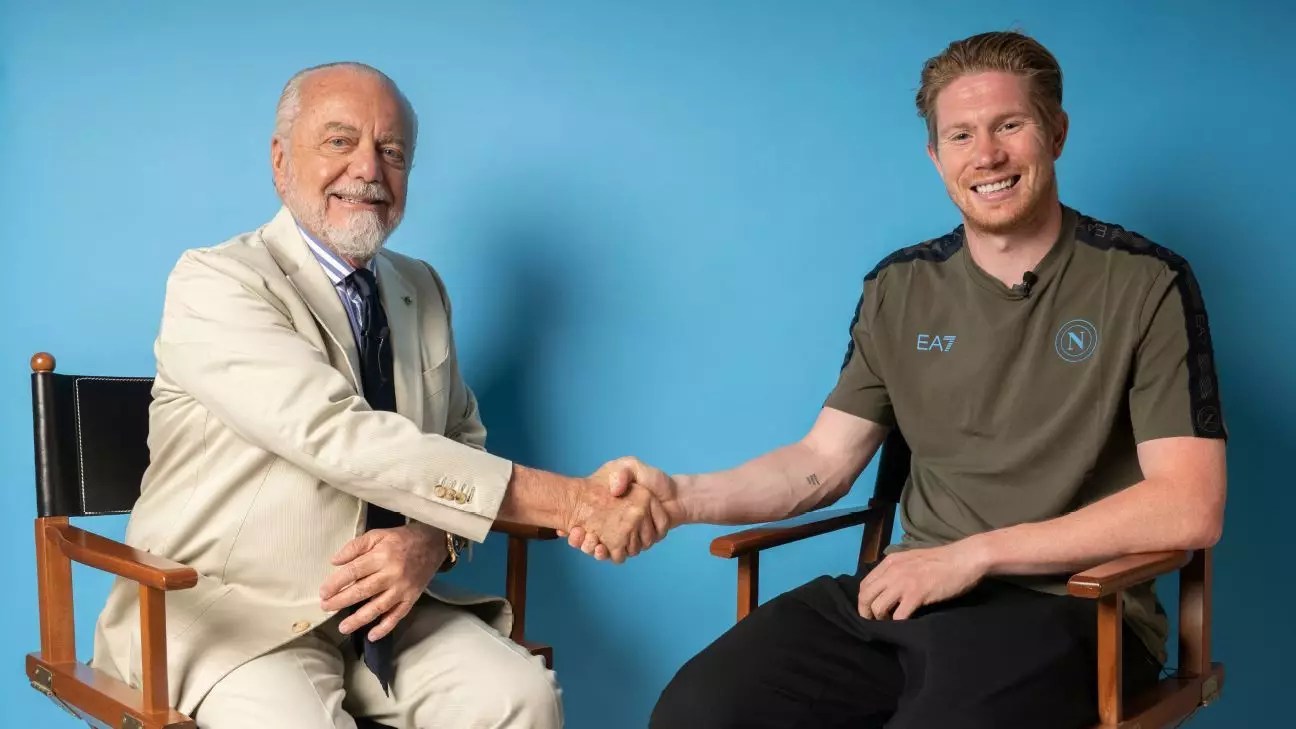Kevin De Bruyne’s decision to leave Manchester City after a decade of unparalleled success marks more than just a transfer; it signifies a remarkable evolution in a career defined by consistency, brilliance, and leadership. Known widely as one of the finest midfielders in Premier League history, De Bruyne’s move to Napoli underscores a desire to challenge himself in unfamiliar territory and embrace a new footballing philosophy. This transition isn’t merely about changing clubs; it’s a statement about growth, ambition, and reinvention. Despite his age—34 last month—De Bruyne demonstrates that his hunger for excellence remains undiminished, and his willingness to adapt and learn points to a player who refuses to rest on his laurels.
This switch to Serie A positions De Bruyne within an Italian league renowned for tactical sophistication and strategic depth. It’s an environment where technical mastery and intelligence are prioritized, offering him an opportunity to enhance his skills and contribute to a team that is already a reigning champion. His decision reflects confidence that an aging star can reinvent himself, thriving in a league celebrated for its emphasis on technical finesse and tactical nuance. This move signifies a conscious effort to expand his footballing horizons and challenge the stereotypes of career decline with age.
Strategic Reasons: Beyond the Glory of Napoli
De Bruyne’s choice was motivated by more than just the allure of Italian football; it was driven by a desire for fresh challenges and a different kind of professional fulfillment. The fact that Manchester City chose not to extend his contract was, perhaps, a catalyst rather than a setback. Instead of viewing this as a loss, De Bruyne seems to see it as an invitation—an opportunity to forge a new legacy. His openness about leaving “the Premier League for a new challenge” reveals a mindset oriented toward growth rather than comfort.
Linking up with Romelu Lukaku added a personal and strategic appeal. Having known Lukaku since adolescence and sharing a history at Chelsea, De Bruyne finds solace in the familiarity and camaraderie, which can be crucial in a foreign league. This connection goes beyond friendship; it provides a support network that can facilitate his adaptation to Italian football’s demands. Moreover, Lukaku’s understanding of the coaching environment under Antonio Conte offers De Bruyne a smoother transition, reducing potential barriers associated with cultural and tactical differences.
Uncharted Territory: The Challenges and Excitements
While De Bruyne is aware of the hurdles ahead—learning a new style of play, adapting to a different competitive atmosphere—his enthusiasm remains undiminished. His acknowledgment of the need to “learn and grow” illustrates a humility that is often overlooked in superstar athletes. Napoli’s squad, despite being champions, is still evolving, and De Bruyne’s presence signals their intent to strengthen their core with world-class talent.
This move also highlights something profound about his character: a willingness to step outside of his comfort zone. Transitioning from the Premier League’s fast-paced, high-intensity environment to Italy’s tactically rich league demands adaptability. De Bruyne’s veteran experience will be invaluable for Napoli, not just through his technical skills but through his leadership and strategic intelligence. His pursuit of learning suggests an athlete who sees football as a constantly evolving craft and himself as a lifelong student of the game.
In embracing this new chapter, De Bruyne challenges the notion that greatness must follow a linear path rooted solely in familiarity. Instead, he exemplifies that true excellence requires risk, courage, and a relentless pursuit of self-improvement. Napoli’s upcoming campaign will serve as the stage for his latest act—a testament to resilience and the timeless hunger for greatness in the beautiful game.


Leave a Reply